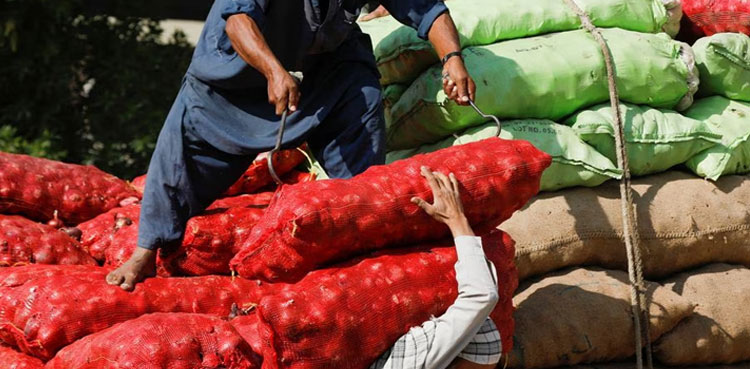
Though people keep repeating ad nauseum that Pakistan is in the vice-like grip of cartels controlled by the elites of the country, but the actual fact is that there is no price control mechanism to regulate the massive fluctuation in the pricing structure.
However, one cannot neglect a corroborative factor of pertaining to the reality that national existence in Pakistan stands on the foundation of two historical legacies: the concentration of power in an overdeveloped state and its elite, including the dynastic political elite. Although elites balance multiple class interests, they essentially remain responsive to their own interests and the interests of their narrow client base. It was often lamented that in the broader scheme of things that the governance order in Pakistan has not been open to the wider citizenry.
The latest developments in the country point out that the narrowness of the interests of the elites are now shared by emerging forces and the most prominent of them are the openly willful market forces and their rising power is duly augmented by the hoarding and transporting elements that provide support to them. This situation became manifest in the consistent rise in prices of almost every item in the country that has refused to abate. It must be kept in mind that most significant developments altering course of history have humble beginnings but now even the most harmful actions taken by the market forces have been unable to make people protest. There is no general unrest caused by the inflationary spiral gripping the country for which the factors now guiding the national destiny are held responsible. This difficulty has taken a different turn in which the cost of opening doors to a third political force in the country is now debated as untenable in the quarters that brought it about.
In this backdrop it must be brought to fore that farmers in the country are facing increasing difficulty owing to the inclement weather and it is feared that the rapacity of the market forces would be given a boost by such a situation whereby they will gleefully increase the prices of edibles that will have a circulatory impact on everything else. It is therefore imperative to analyse the perennial fluctuation in prices in Pakistan and pin down the causes instead of passing on the buck to the political malaise. This analysis is urgently required as a matter of fact, overall production of edibles remains in short supply and a fair bit of them is routinely imported.
In this context just having a look at the agricultural produce would convey how the market forces manipulate the pricing structure. The market forces look forward to the mishandling of crop at the farm and remains current about the poor storage and transportation facilities and inadequate market infrastructure. They are often aware that which crop will be picked up by transporters on priority and which is going to be hoarded. They are constantly apprised of the profiteering levels of importers/traders/wholesalers and transporters. These components of the market depend upon the market forces to be an effective public face of the retail chain and are encouraged to keep up their activities by providing merchandise on long-term credit basis.
Most of the times the market forces feel free to give wide discretionary authority to keep on fluctuating the prices and also to provide concessions wherever appropriate. The entire sequential process is built around the market forces and they act as the king-pin. The hidden market forces jump-up to their assistance whenever public sentiment advocates boycott of items of everyday use and portray themselves as the helpless wage earners making his ends meet by labouring in difficult conditions. They are the largest segment of retail trade that operates not only out of the regular supply-chain and successfully avoiding all supervisory regulations.
The only way to tackle the growing power of the market forces is to establish large purchase centres and wholesale markets at district level, preferably under public-private partnerships. Similarly, efforts should be made for onward supplies to other districts of the same province or of another province that can be cheaply done by establishing a network of licensed transporters so that at the time of supply shocks they cannot overcharge.
The most effective organ for limiting the power of the market forces are the provincial governments that, with active collaboration of the corporate sector, can also set up large processing units for supplying merchandise under public-private partnerships. At times of peak production of a certain item or utility, these units can get supplies at agreed prices so that producers do not have to sell their produce for a song. Also, during a lean production period in a certain district or province, finished products processed can be supplied to retail markets there with the assistance of government and municipal forces.
from Business News updates - Latest news stories on Economy from Pakistan https://ift.tt/1Zhl7eM



0 Comments